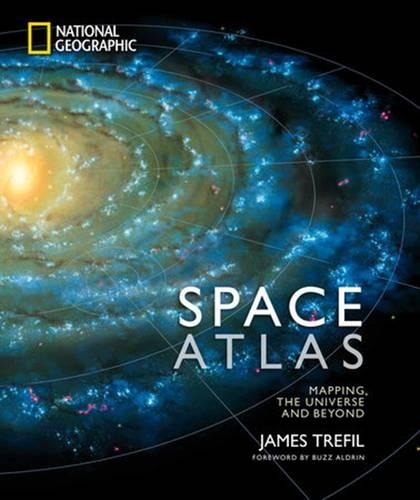
Space Atlas: Mapping the Universe and Beyond
(Hardback)
Available Formats
Publishing Details
Space Atlas: Mapping the Universe and Beyond
By (Author) James Trefil
National Geographic Society
National Geographic Society
6th November 2012
United States
Classifications
General
Non Fiction
520.223
Physical Properties
Hardback
336
Width 242mm, Height 307mm
Description
The tour starts close to home within the first domain, our own solar system. There is a tremendous variety here, from the sun scorched rocks of Mercury to the icy vastness of the Kuiper Belt beyond Pluto. We see the sun and planets born from the collapse of an interstellar dust cloud whose atoms were themselves created in long dead stars. Since many of these planets have been visited by space probes or landers, we are able to benefit from the incredible technology of exploration developed by NASA and its counterparts in other countries. The second domain is made up of the billions of stars in our own Milky Way galaxy. We walk in the steps of the American astronomer Edwin Hubble, who first established that the universe is made up of discrete galaxies, then go on to examine the fundamental constituents of those galaxies-the stars. We see stars not as eternal lights in the sky, but as objects born out of a desperate struggle between pressure and gravity. We trace the life cycle of our own sun, from its birth 4.5 billion years ago to its quiet end 6 billion years in the future. We see the galaxy not as a serene and placid place, but as a giant factory, where primordial material is ta
Reviews
"A gorgeous, fact-filled must for reference sections."-Library Journal starred review
"A joy to look at...For all those who ever dreamed of traveling to the stars, Space Atlas will surely keep those fantasies alive." -Seattle Post-Intelligencer
"An atlas of such beauty is rare indeed." -Science Books & Film
Author Bio
JAMES TREFIL is a physicist and author of more than 30 books, including The Laws of Nature and Other Worlds- The Solar System and Beyond. He is co-author of an influential textbook, Science Matters- Achieving Scientific Literacy, and was a contributor to National Geographic's Encyclopedia of Space. A former physics professor at University of Virginia, he now teaches physics at George Mason University, and regularly gives presentations to judges and public officials on the intersection of science and law. The author lives in Washington, D.C.. Author Residence- Washington, D.C.
